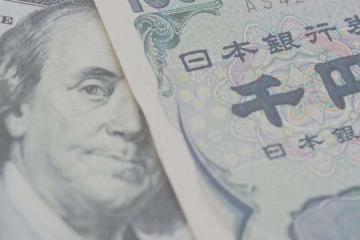Japan's Role in the Historic Collapse of U.S. Debt
Advertisements
The United States currently finds itself in a precarious financial situation, with its national debt soaring to an astonishing $36 trillion—an amount that rivals the country’s entire annual GDPDuring such tumultuous times, Japan, which has long been considered a steadfast ally of the U.S., appears to be taking unexpected actions that some might interpret as backhandedOn January 17, the Governor of the Bank of Japan, Kazuo Ueda, announced that the central bank would explore the possibility of interest rate hikes in a bid to secure the yen’s position in the international financial arena.
From a macroeconomic perspective, Japan’s inflation rate and overall economic progress seem to align closely with the expectations previously set by the Bank of JapanGiven these circumstances, an interest rate increase in Japan could be seen as almost inevitableOn one side, Japan has experienced a steady uptick in its inflation rate recently, which indicates a rise in domestic prices
Advertisements
In response to this situation, raising interest rates emerges as a both conventional and effective monetary policy tool aimed at stabilizing prices while curbing inflationary pressuresOn the other side, Japan's economy has shown signs of resilience during its recent recovery, providing a solid economic backdrop for such a decision.
Moreover, the continuing depreciation of the yen against other currencies adds further urgency to the matterIn foreign exchange dynamics, currency values and interest rates are intricately connectedTherefore, a decrease in the yen’s value could enhance the competitive advantage of Japanese export businesses on the global stage, potentially increasing export volumes and spurring economic expansionIn this context, implementing an interest rate hike would serve multiple purposes: it could stabilize the yen’s value, mitigate excessive depreciation, and attract foreign investment into Japan, injecting new life into its economy.
This leaves one pondering the repercussions for the United States
Advertisements
Having consistently relied on U.STreasury securities, Japan’s shift toward monetary tightening might strike a painful blow, especially during a period when the U.Sis grappling with its own financial challengesLast July, during a period characterized by a Federal Reserve rate-cutting cycle, Japan had previously undertaken a similar maneuver—a reverse play by exploiting the yen against the dollar to capitalize on arbitrage opportunitiesThis move rattled U.Smarkets and sparked fears among American investors.
Historically, the U.Shas strategically benefitted from Japan’s economic turmoil, capitalizing on the bubble economy of the late 1980s to inflate the yen’s value, only to subsequently reap the rewards by dismantling Japan’s wealth accumulated over decadesToday, as the U.Sfinancial empire finds itself arguably at its weakest point since World War II, Japan’s poised and calculated maneuvers appear as if they are ready to deliver a final crushing blow—one of which could be perceived as a metaphorical bloodletting of American influence and power.
Insights from various financial analyses suggest that Japan could choose a significant moment to further exploit the yen, akin to a “financial Pearl Harbor.” Such actions could herald a historical contribution to the impending collapse of U.S
Advertisements
treasury securities, perhaps marking a pivotal shift in global economic dynamics.
It’s important, however, to contemplate that this unfolding drama might well be seen as due retribution for AmericaIn retrospect, when the U.Sexploited Japan and other Southeast Asian nations, one could argue that the consequences of such actions were always bound to return as retaliation—an inevitable cycle of consequences playing out theatrically on the global stage.
The prosperity that America enjoys today has undoubtedly been built atop the suffering of many nationsAs the world watches a once-mighty America wade through its vulnerabilities, the question arises: who would not want to capitalize on such an opportunity? Additionally, America’s historical pivot from an industrial to a financial empire has brought with it a set of risks that must now be confrontedThis gamble on quick financial gains requires acknowledgment of the underpinning volatility of the financial world.
Just as America was able to harvest from others, it stands to reason that others might similarly turn the tides and harvest from America
- Why Is the US Market Bullish Amid Slower Profit Growth?
- Eurozone May Continue Rate Cuts
- Can Mebon's Rally Continue?
- Fed to Raise Interest Rates
- The Definitive Guide to Value Investing
The rules governing capital games are indiscriminate; no player can escape their reach.
The countdown to a possible American debt default is underwayShould U.STreasury securities falter, the implication would extend far beyond mere fiscal collapse; it would signify the unraveling of the entire U.Seconomic framework.
Historically, America’s hegemony has been two-fold—military and economicThe economic prowess has served to bolster military strength, while military power has in turn safeguarded economic interestsHowever, as signs of weakening military dominance emerge, the crumbling of economic superiority seems increasingly apparent, reaching a point where the fall of one alone could suffice to deliver a significant blowThe collapse of both occurs, and the scenario for America’s future grows even grimmer.
Perhaps it is indeed fate that the nation once hailed as the "beacon of the world," may find itself tripping over its historical missteps amidst an escalating debt crisis

Leave a Reply
Your email address will not be published. Required fields are marked *